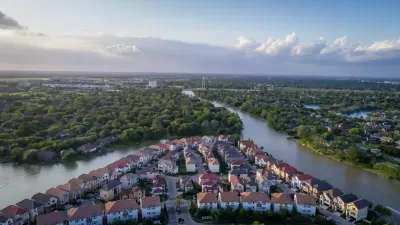A recent article describes the context of urbanization around the country before examining the implications of the trend for the decisions made by bankers—i.e., where and how to invest—especially given the realities of the post-recession economy.
A recent article by John Engen for American Banker manages a lot of tasks. First comes the work of citing the relevant facts regarding the trend of migration toward U.S. urban centers. To do so, Engen cites the growth of urban centers around the country between the years 2010 and 2012: “In total, 16 of the 20 largest U.S. cities experienced growth rates faster than their surrounding suburbs between 2010 and 2012, according to census data.”
Then Engen goes on to describe the implications fo the trend to the business decisions of banks—not only where and how to invest, but how to structure the bricks and mortar assets of business operations. “For banks, the budding movement of people and businesses to the cities is playing out against a backdrop of sluggish economic growth, harsher regulatory oversight, rapid technological change and earnings pressure. Cost controls are a priority, which dovetails nicely with the behavior of younger city dwellers, who generally are comfortable accessing their banks online or via mobile devices rather than visiting branches.,” writes Engen. Engen quotes a variety of executives and analysts on the subject of how urbanization might influence future practices of the banking industry. Some examples:
- “‘Whatever growth we're seeing in cities clearly matters less than it would have a decade ago, simply because of the adoption of digital channels,’ says David Stein, executive vice president and head of retail banking for Green Bay, Wisc.-based Associated Banc-Corp, which competes in Chicago, Minneapolis and Milwaukee.”
- “Clayton Baker, head of consumer financial advisory services for Ernst & Young, acknowledges the recent bump in urban populations but says he knows of no set ‘urban strategy’ for banks, no blueprint to follow for success. Banking is banking, to a certain extent. ‘There isn't just a model you can overlay on an urban market,’ he says.”
- “‘We put out a caution to our lenders two years ago: When it comes to multifamily, you've got to be very careful,’ says Joseph Hoesley, vice chairman for commercial real estate at U.S. Bancorp, which has been lending to more city projects in recent years.”
FULL STORY: Hot in the City

Planetizen Federal Action Tracker
A weekly monitor of how Trump’s orders and actions are impacting planners and planning in America.

Restaurant Patios Were a Pandemic Win — Why Were They so Hard to Keep?
Social distancing requirements and changes in travel patterns prompted cities to pilot new uses for street and sidewalk space. Then it got complicated.

Map: Where Senate Republicans Want to Sell Your Public Lands
For public land advocates, the Senate Republicans’ proposal to sell millions of acres of public land in the West is “the biggest fight of their careers.”

Maui's Vacation Rental Debate Turns Ugly
Verbal attacks, misinformation campaigns and fistfights plague a high-stakes debate to convert thousands of vacation rentals into long-term housing.

San Francisco Suspends Traffic Calming Amidst Record Deaths
Citing “a challenging fiscal landscape,” the city will cease the program on the heels of 42 traffic deaths, including 24 pedestrians.

California Homeless Arrests, Citations Spike After Ruling
An investigation reveals that anti-homeless actions increased up to 500% after Grants Pass v. Johnson — even in cities claiming no policy change.
Urban Design for Planners 1: Software Tools
This six-course series explores essential urban design concepts using open source software and equips planners with the tools they need to participate fully in the urban design process.
Planning for Universal Design
Learn the tools for implementing Universal Design in planning regulations.
Heyer Gruel & Associates PA
JM Goldson LLC
Custer County Colorado
City of Camden Redevelopment Agency
City of Astoria
Transportation Research & Education Center (TREC) at Portland State University
Camden Redevelopment Agency
City of Claremont
Municipality of Princeton (NJ)





























